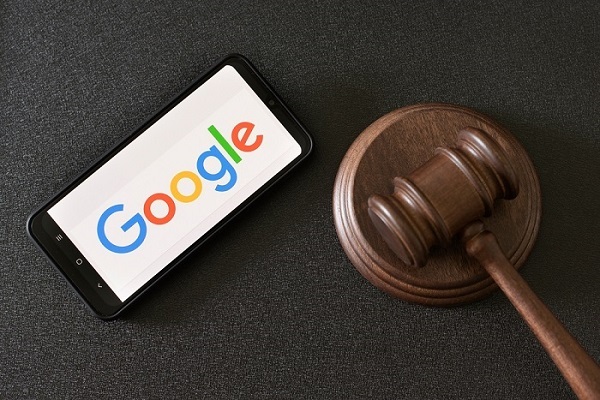
 Data Structure
Data Structure Networking
Networking RDBMS
RDBMS Operating System
Operating System Java
Java MS Excel
MS Excel iOS
iOS HTML
HTML CSS
CSS Android
Android Python
Python C Programming
C Programming C++
C++ C#
C# MongoDB
MongoDB MySQL
MySQL Javascript
Javascript PHP
PHP
- Selected Reading
- UPSC IAS Exams Notes
- Developer's Best Practices
- Questions and Answers
- Effective Resume Writing
- HR Interview Questions
- Computer Glossary
- Who is Who
What Should Be Done to Avoid Google Penalty?
As digitalization increases, businesses and web administrators are becoming more aware of how important Google rankings are to their success. A drop in search engine rankings can affect organic traffic and branding. Even if your company is relatively large or established, Google still doesn't discriminate. If you don't play nice with the company, you might face penalties that will affect your search engine ranking.

For instance, Bing Discover lost its search engine ranking after Google took down certain pages. Getting penalized and losing search traffic is not the best way to boost your company's rankings. Instead, follow these 15 simple steps to avoid getting hit with a Google penalty.
What do we Understand by "Google Penalty?"
The penalty is a term used in the SEO industry to describe the negative impact of an algorithm update or manual action on a website's organic search ranking. The penalty imposed on a website is usually triggered by violations of Google's guidelines. There are two types of penalties: manual and algorithm-based. The former is an intentional penalty, while the latter is automatic. Although Google doesn't call algorithmic hits penalties, the end result is the same for a website owner. It's like somebody threw a penalty flag on your site.
How do I Avoid the Google Penalty?
Avoid paid links ? If you buy links, you will most likely get penalized by Google. This is because the search engine giant doesn't like the idea of people getting paid for them. Also, don't trust the claims made by companies that sell links.
Say no to keyword stuffing. One of the biggest issues that an SEO expert will tell you about is keyword stuffing. For a long time now, Google has been actively penalizing and punishing websites that indulge in this practice. However, through its BERT algorithm update, the search engine giant has been able to improve its understanding of content.
Avoid shallow-depth content. The BERT update, which is currently only affecting a few websites, will eventually affect every page of a website. It means that if a site has shallow content, it will get penalized by Google, and this can be avoided by maintaining an industry-focused blog.
Copyright Infringing ? Google considers duplicate content to be seriously harmful. It will prevent web pages that contain numerous identical pieces of content from being indexed, and it can penalize those who distribute their content in different places.
Including Top Heavy Advertisements ? Google's Page Layout Algorithm is designed to flag websites and pages that are too cluttered with ads. It also penalizes those that are "top-heavy," which means that they have excessive content at the top of the page, which can make users feel like they are being overwhelmed.
Avoid Hiding Content ? Google is focused on transparency, which is why they don't like it when people hide their content in order to trick them into ranking it higher. Also, some SEO experts do things like change the background color of their text to improve their rankings. These actions will likely lead to penalties. As a result, ensure that all of your content is high-quality.
Make your brand trustworthy. As a search engine, Google wants to provide the best possible experience for users who rely on it. It does so by ensuring that the listings are relevant to the search query that the user is looking for. Google also tends to favor websites with a high-quality customer experience. Having a well-designed and user-friendly website can help boost your site's ranking and decrease your site's risk of getting penalized.
Make Human-Friendly URLs ? One of the most important factors that you should consider when it comes to avoiding web page penalties is the creation of clear and concise written URLs. While it's fine to include exact keywords, your URL should also be written to match the content of the site.
Avoid link spamming other websites ? One of the most effective ways to avoid getting penalized by Google is to avoid doing what's known as link spamming. This is a technique that's commonly used by agencies and individuals who don't have a lot of knowledge about SEO to add links to their websites. It's when they think that they'll contribute to the search engine's algorithm, and then they add a link manually.
Beware of Hacked Websites ? Due to the increasing number of hacking incidents, it's more important than ever that you keep your website's content management system secure. When Google detects that a site has been hacked, it will notify the search engine's spider bots about the issue. This can result in a higher penalty than losing some of your search ranking.
Cloaking ? Cloaking is a technique that allows pages and websites to trick Google by displaying a different page to users than it does to them. This is done through the use of "black hat" SEO techniques, which are designed to get the search engine to think that the user is going to a different page. Google penalizes those that do this, as it wants to make sure that the user doesn't click on the link.
Avoid Outbound Links ? An outbound link is important to establish that you are a credible company that won't shy away from linking to other businesses and websites that are reputable. Including links to high-authority sites is crucial not to get penalized, and links from your blog can serve as a great place to do so.
Beware of Harmful Inbound Links ? A link from a website that is flagged as harmful will create an inbound link. Since Google has found this link on a low-quality website, it will start conducting a search on your site in an attempt to find any suspicious activities. You can monitor your links through a third-party monitoring platform such as Google Search Console.
Avoid Overusing Anchor Text ? Getting penalized by Google for not distributing or overdosing on anchor text can affect your search engine optimization efforts. One of the most common reasons why Google penalizes websites is because they don't use anchor text properly. It is the actual text that a user will be directed to after clicking on a link.
Showcase your physical address to viewers. If you have one, your physical location can help you avoid getting penalized by Google, as it shows that you are credible. Having all three of these elements on your site will help you rank well with search engines. One of the most crucial factors that you should include on your site is your company's name, address, and telephone number. This will let search engines know that you are a trustworthy entity.
Conclusion
Getting around a Google penalty can be a daunting task. But if you follow the rules and don't get involved in illegal SEO techniques, you should avoid getting penalized. Some of the factors that can lead to a Google penalty are link farming, irrelevant backlinks, and thin content. It's important to pay attention to these factors so that you don't get penalized. Also, keep in mind that search engine rankings can change due to various factors. So always be on the lookout for updates that could affect your rankings.

